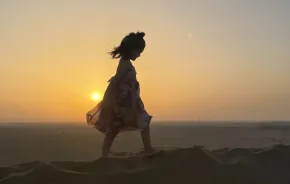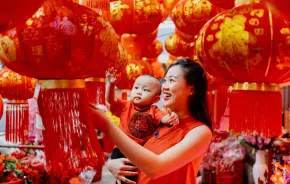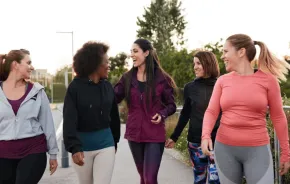
I felt safe.
At 9:29 p.m. on May 23, 2014, my 18-month-old twins had finally fallen into a deep sleep. I snuggled into bed, kissed my husband goodnight, then habitually checked my phone one last time. A jarring, jingly iPhone notification and CNN Breaking News report blipped on my screen — something about a shooting in progress. I ignored it, slightly annoyed by the disruption and feeling sure that the story had nothing to do with my family or me.
I silently reminded myself to turn that notification off before falling into the last truly restful sleep of my life.
The next morning was Saturday. I awoke at 7 a.m. to find five voicemails from my aunt. As my husband turned on the morning news and we watched images of police cars and tense press conferences, I returned my aunt’s calls in a panic.
“Something very sad has happened,” she said between muffled sobs. "There’s been a shooting. You’ve seen the news? It’s in Santa Barbara…”
I glanced at the television screen, then back at my phone, quickly connecting the dots.

Veronika.
Oh my God, Veronika.
My 19-year-old cousin, a freshman at UC Santa Barbara, had been shot and killed in a mass shooting on campus. She was my first baby, my favorite friend, and one of the people I trusted most. She’d graduated high school a year before as a star student and athlete, and she’d found her home in a sorority at UCSB. Her plan was to major in math or economics, move to New York, and change the world.
She’d been walking home, no doubt thinking — as everyone should at age 19 — that she was safe.
The aftermath
Between CNN and the foggy details that came from police, a picture of a shooter with a history of mental illness emerged. Moments after posting his plans on YouTube, Veronika’s shooter left his apartment with over 400 rounds of ammunition and three semi-automatic handguns. Having already stabbed and killed three of his roommates, his plan was to enter a sorority house and kill everyone inside. When no one answered the door at the sorority, he got into his car and drove slowly down the street, rolling down his window and shooting at anyone in his way.
Veronika and her two friends happened to be walking past his BMW at that exact moment. My beautiful cousin was shot seven times and, we later learned, lived for several minutes while police and good Samaritans attempted CPR. One of Veronika’s best friends, Katie Cooper, was walking alongside her and died instantly. A third friend survived with life-threatening injuries. Seven people died that night, including the shooter, who took his own life.
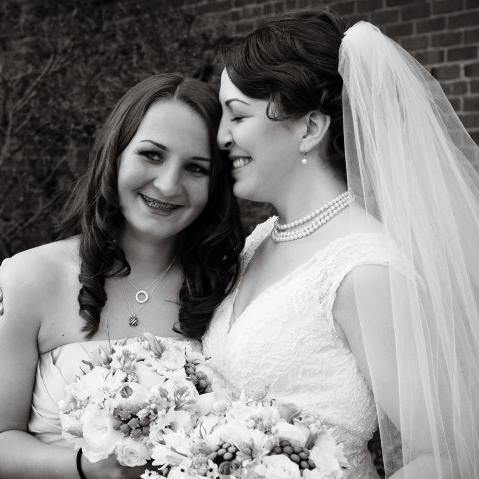
A preventable tragedy
In the weeks that followed Veronika’s shooting, we learned that the shooter’s family had reported their concerns about his mental state to law enforcement, concerned that he was a danger to himself or others. In response, police had visited his apartment on a “wellness check” and questioned him, but with no legal authority to search his belongings or seize his weapons under California state law, they left.
They left.
I shudder when I visualize the moment authorities turned their backs as my cousin's murderer closed his apartment door behind them; it was a split-second that could have stopped a tragedy and saved not only Veronika and the five other victims, but the shooter as well. In his manifesto, which he published on YouTube just prior to the murders, he admitted that, “it would have been all over” if police had entered his apartment that day. Instead, everyone who was in a position to help had their hands tied, genuinely helpless to remove a mentally unstable person from his guns.
The laws failed that day. There was no system, no plan, and most definitely no safety net.
Everyone who was in a position to help had their hands tied, genuinely helpless to remove a mentally unstable person from his guns.
The laws failed that day.
What we can learn
Veronika's story is not an isolated one, and school shootings have become a regular part of the news cycle. There have been 142 school shootings since Sandy Hook, the most recent claiming 10 lives thus far and injuring many others on the Umpqua Community College campus. Details surrounding the Oregon shooting are still uncertain, but we do know this: There are steps we can take to learn from and to prevent these tragedies.
Earlier this year, the Washington State legislature considered House Bill 1857, which concerned Extreme Risk Protection Orders. It would have allowed Washington families and law enforcement to present documented evidence to a court to temporarily remove an unstable person from their firearms when they were deemed to be at “extreme risk” of harming themselves or others. Modeled on a similar bill that passed in California in the wake of the UC Santa Barbara murders, HB 1857 failed in committee.
The defeat felt personal. Along with many other gun violence survivors and advocates, I’d testified to the committee about Veronika’s story. I listened to the legislators deliberate the facts. Throughout the process, lawmakers on both sides of the debate agreed that volatile individuals should not have immediate access to guns. Politics, money, and semantics prevented them from coming to an agreement. The bill will be resubmitted this year, countless months later. How many people will have died in the meantime? I wish Veronika’s story could be the last.
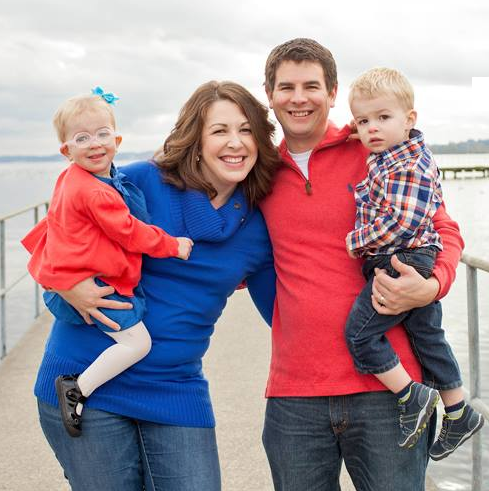
The images of the crime scene, evidence cards, Veronika’s body covered by a sheet, the darkness and chaos lit in red and blue flashing police lights — they stand in such stark contrast to the idyllic, beachside UCSB campus that Veronika knew and loved. It’s easy to get wrapped up in those snapshots, but instead, I choose to picture her walking down the street, laughing, gorgeous and happy. I think of the last words I ever spoke to her: ironically, I told her to “be safe” and have the time of her life.
That movie reel stops at 9:29 p.m.
"Safety" means something different now. I still tell my twins they’re safe; fortunately, they’re still too young to detect the fear and doubt in my voice when I say it. Someday, when it’s time, I’ll tell them about Veronika. I dream that they’ll want nothing more than to be like her. They’ll be young and gorgeous and will walk down the street with their friends.
And, even though I will know that I've done everything in my power to keep them safe, I'll remember that my family is not invulerable to gun violence. I'll remember that terrible day, the phone call that no one should ever recieve. I'll remember my beautiful cousin, Veronika. I'll keep fighting and advocating. I'll never forget. It's my promise.
Want to learn more and get involved? Find resources and volunteer opportunities here:
The Center for Gun Responsibility
The Washington Alliance for Gun Responsibility
Moms Demand Action for Gun Sense in America
Everytown for Gun Safety
Brady Campaig to Prevent Gun Violence
If you are a Washington resident, you can also write to your legislators about Extreme Risk Protection Orders and learn more about HB 1857.








